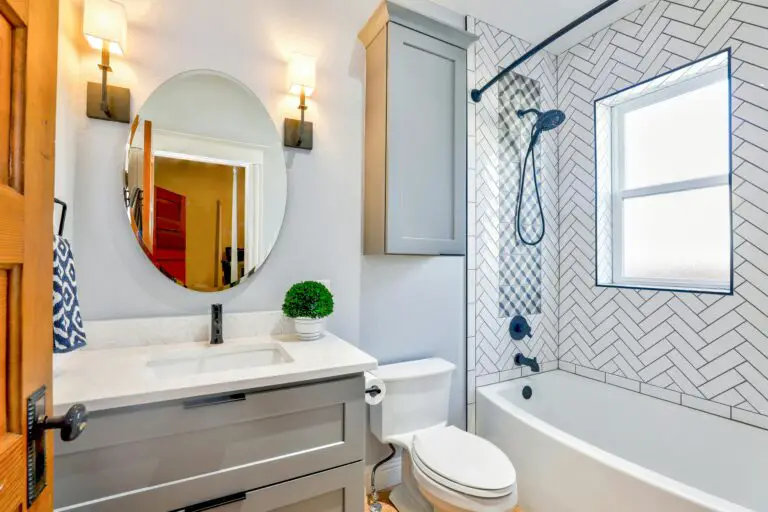The kitchen countertop serves as both a functional work surface and a focal point of your kitchen’s design. It’s where you chop vegetables, roll out dough, and gather with family and friends. Therefore, selecting the right countertops is a decision that shouldn’t be taken lightly. With countless materials, colors, and finishes available, finding the perfect fit for your space can be a daunting task.
In this article, we’ll delve into essential tips for choosing the right kitchen countertops. We’ll cover everything you need to know to make an informed decision.
1. Consider Your Lifestyle and Cooking Habits
When choosing kitchen countertops, it’s crucial to consider your lifestyle and cooking habits. Do you frequently entertain guests and require ample space for meal preparation? Are you an avid home cook who spends hours chopping, slicing, and dicing? Understanding how you use your kitchen will inform your countertop selection.
For busy households, durable and low-maintenance materials like quartz or solid surface may be ideal, as they are resistant to stains, scratches, and heat damage. If you enjoy baking and kneading dough, a smooth and non-porous surface like granite or marble may be preferable for rolling out pastry. Consider how much upkeep you’re willing to commit to and choose countertops that align with your lifestyle.
2. Explore Different Material Options
The material you choose for your kitchen countertops will significantly impact both the aesthetic appeal and functionality of your space. From natural stone to engineered quartz and butcher block, each material offers unique advantages and drawbacks.
- Granite: Known for its durability and natural beauty, granite is a popular choice for kitchen countertops. It’s heat-resistant, scratch-resistant, and available in a wide range of colors and patterns.
- Quartz: Engineered quartz countertops are composed of natural quartz combined with resins and pigments. They offer the look of natural stone with added durability and low maintenance. Quartz countertops are non-porous, making them resistant to stains and bacteria.
- Marble: Marble countertops exude elegance and sophistication, with unique veining and patterns that add character to any kitchen. While marble is prone to etching and staining, it can be sealed for added protection.
- Solid Surface: Solid surface countertops, such as Corian, offer a seamless appearance and are available in a variety of colors and patterns. They are durable, non-porous, and easy to clean, making them an excellent choice for busy kitchens.
- Butcher Block: Butcher block countertops lend warmth and character to kitchens with their natural wood grain. While they require regular maintenance and may be susceptible to scratches and water damage, they can be sanded and refinished to restore their beauty.
3. Evaluate Maintenance Requirements
Before committing to a particular countertop material, consider the maintenance requirements involved. Some materials, like quartz and solid surface, are virtually maintenance-free and only require regular cleaning with soap and water. Others, such as marble and butcher block, may require more upkeep to preserve their appearance and integrity.
Granite and marble countertops should be sealed periodically to prevent staining and etching, while butcher block countertops need to be oiled regularly to maintain their luster and protect against moisture damage. Factor in the time and effort you’re willing to invest in maintenance when selecting countertops for your kitchen.
4. Set a Realistic Budget
Your budget will inevitably play a significant role in determining which kitchen countertops are within reach. While natural stone countertops like granite and marble may be luxurious options, they often come with a higher price tag. Engineered materials like quartz and solid surfaces offer comparable aesthetics at a more affordable price point.
Consider not only the cost of materials but also installation fees and any additional expenses, such as sealing or finishing treatments. Set a realistic budget and explore options that fit within your financial constraints without compromising quality or durability.
5. Seek Professional Guidance and Samples
Choosing the perfect kitchen countertops is a significant investment, so don’t hesitate to seek professional guidance and expertise. Visit showrooms and consult with countertop specialists who can provide valuable insights and recommendations based on your specific needs and preferences.
Request samples of your preferred materials to take home and test in your kitchen environment. Seeing the countertops in your space and observing how they interact with lighting, cabinetry, and other elements will help you make an informed decision.
Conclusion
Selecting the right kitchen countertops is a decision that requires careful consideration of factors such as lifestyle, material options, maintenance requirements, and budget. By following the tips outlined in this guide, you can navigate the selection process with confidence and find countertops that perfectly complement your kitchen space.
Whether you opt for the timeless elegance of granite, the durability of quartz, or the warmth of butcher block, prioritize functionality, aesthetics, and long-term value. With the right countertops in place, you can create a kitchen that not only meets your practical needs but also reflects your personal style and enhances the overall ambiance of your home.
Frequently Asked Questions (FAQs)
1. What are the most durable kitchen countertop materials?
Granite and quartz are widely regarded as the most durable kitchen countertop materials. Both are highly resistant to scratches, heat damage, and stains, making them ideal for busy households and avid home cooks. Solid surface countertops like Corian also offer durability and low maintenance.
2. How do I prevent staining and damage to my kitchen countertops?
To prevent staining and damage to your kitchen countertops, it’s essential to follow proper maintenance and care guidelines. Seal natural stone countertops like granite and marble regularly to protect against stains and etching. Avoid placing hot pots and pans directly on countertops and use cutting boards to prevent scratches.
3. Can I install kitchen countertops myself, or should I hire a professional?
While some homeowners may have the skills and experience to install kitchen countertops themselves, hiring a professional is often recommended for a seamless and professional finish. Countertop installation requires precision and expertise, especially when working with heavy materials like granite or quartz.
4. How do I choose the right countertop color for my kitchen?
When choosing a countertop color for your kitchen, consider factors such as the existing color palette, lighting, and overall design aesthetic. Neutral colors like white, gray, and beige are versatile and timeless, while bold hues can add personality and drama to your space. Request samples to test in your kitchen environment before making a final decision.
5. Are there eco-friendly options available for kitchen countertops?
Yes, there are several eco-friendly options available for kitchen countertops. Recycled glass countertops, bamboo countertops, and concrete countertops are sustainable choices that minimize environmental impact. Look for certifications such as GreenGuard or NSF to ensure that your countertops meet eco-friendly standards.



